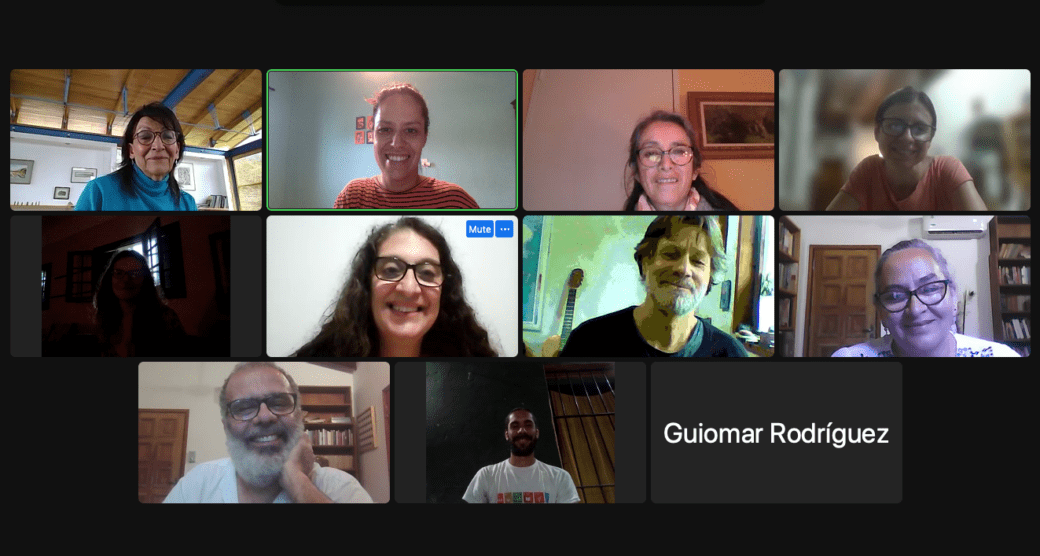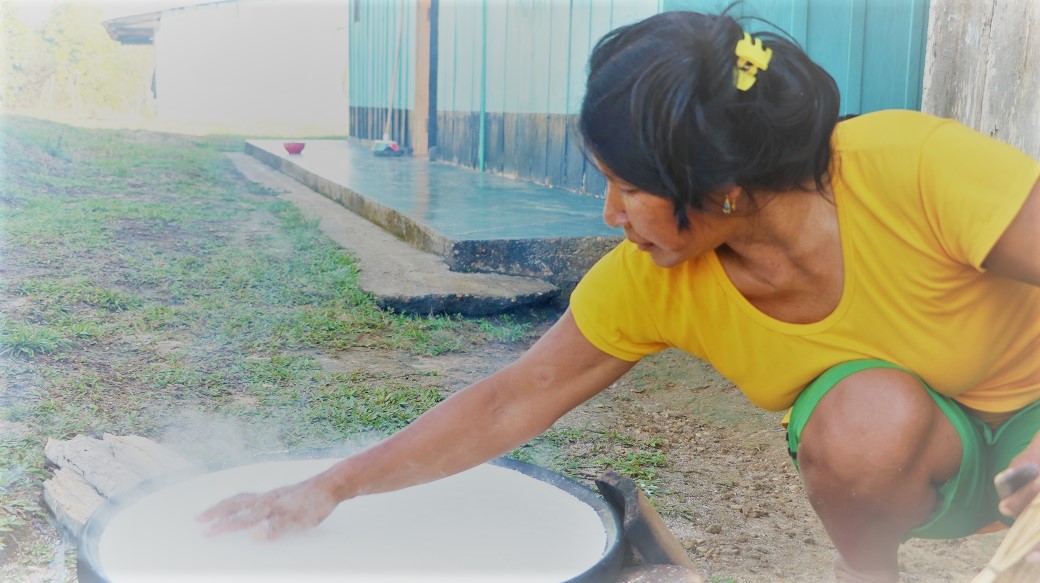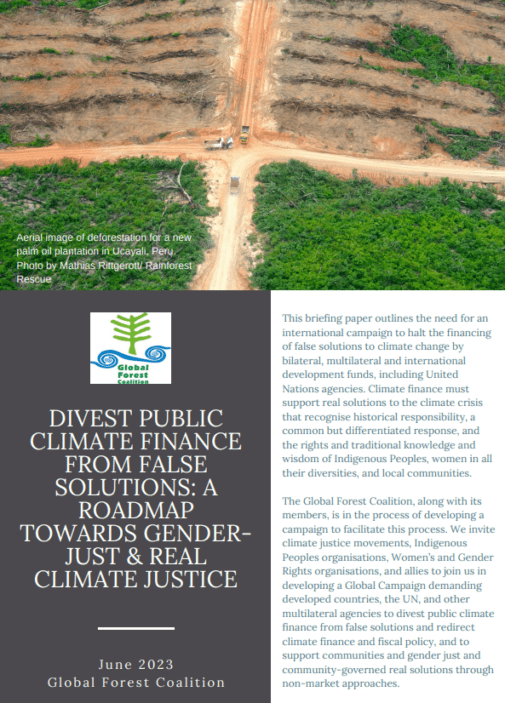Global Forest Coalition brings together Latin American members to plan future actions in the face of the climate crisis
Latin American and Caribbean members of the Global Forest Coalition (GFC) met on 17 November in a virtual regional assembly to establish thematic priorities and define collective advocacy actions in the face of the loss of forest ecosystems and biodiversity that has led to the current climatic and environmental crisis.
More than 20 members of organizations from Argentina, Brazil, Chile, Ecuador, Paraguay, the Dominican Republic and Venezuela responded to the call led by Inés Franceschelli, from the Heñói Studies Center, from Paraguay, and focal point of the coalition for Latin America and the Caribbean, and built a general agenda of actions that will allow the regional advocacy work to continue for the defence of the territories, rights of Indigenous Peoples, women, youth and local communities, affected by the development of extractive projects and false climate solutions in the region.
We are in a moment of [climatic] crisis that merits our coordinated work much more, joining efforts until we achieve the objectives that unite us all.

“We have to make alliances and stay together at the national, regional and global levels. We have greatly respected the campaigns that the GFC ran, we admire the commitment that members have to the GFC and we hope that the coalition will strengthen,” highlighted Marta Núñez, from the Ecuadorian Defense Coordinator of Ecosystems and the Environment (Cedenma). “We are in a moment of [climatic] crisis that merits our coordinated work much more, joining efforts until we achieve the objectives that unite us all.”
The mapping of false solutions to the climate crisis in Latin America and the Caribbean, an initiative being developed by the Latin American and Caribbean Platform for Climate Justice and the Global Campaign to Demand Climate Justice (DCJ), was one of the strategic actions highlighted during the assembly. This digital map seeks to document greenwashing schemes and carbon markets in the region, as well as be a reporting and articulation channel for organizations.
“This project to stop corporate capture, carried out by the Platform for Climate Justice and DCJ, is crucial (…) It is important that we present our cases, hopefully from all the countries where we are represented. It would be an important way to make visible the work we are doing to expose the failure of false solutions,” said Johanna Molina, from the Viento Sur Collective of Chile.
The commodification of nature, addressing the climate crisis through a just, feminist and popular transition, as well as the impacts of the development of extractive industries and tourism were other central issues that members committed to addressing and increasing regional actions of the coalition in 2024.
“It is a secret to no one that the Dominican Republic is a privileged place as a tourist destination and we have duly communicated the problems that this produces to GFC, as well as the fight we have had in recent years against mega-mining,” emphasized Darío Solano, from the Afros RD organization.
Establishing a more direct articulation with the coalition is one of the pending tasks, according to Solano, to strengthen the fight against extractive industries and mega infrastructure and tourism projects.
During the regional Assembly, the coordinators of the Climate Change, Gender Justice and Forests, Unsustainable Livestock, and Extractive Industries and Tourism campaigns of the GFC, Coraina de la Plaza (Spain), Valentina Figuera (Venezuela), Andrea Echeverri (Colombia) ) and Kwami Kpondzo (Togo), respectively, presented the objectives, vision and joint actions to strengthen work with GFC members.








